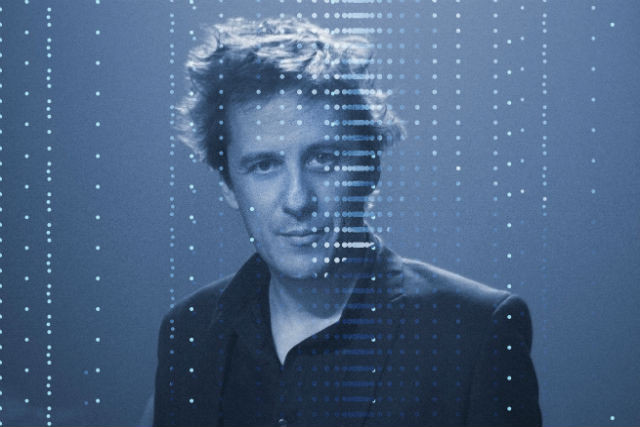Schumacher is one of a number of people featured in the “Celebrating Luxembourg” series, presented by Delano and other titles published by Maison Moderne.
Jess Bauldry: Can you sum up in a few sentences what you do for a living?
Pascal Schumacher: I’m a part-time teacher at the Conservatoire de Luxembourg Ville and a musician. Musicians like me are in a very lucky situation in that we have different jobs at the same time and different incomes also. For the moment, I teach part-time and I compose and play music. I will start doing concerts again after the summer.
How did you get to where you are today?
I grew up in Uebersyren where my father played in the local fanfare harmonie of Schuttrange. I always went to the concerts with my parents. They had a drummer who was my hero. I worked hard to get into the band and then I played there for many years. I studied at the Athénée in Luxembourg and began one day a week studying percussion in Strasbourg, France. I continued in Strasbourg and discovered jazz. Then I moved to Brussels where I studied a bachelor's degree in jazz and then did a masters in jazz in the Hague.
If you were not a musician what would you be?
When I had to fill out these books in school from friends saying what you wanted to become, I wrote an architect. I don’t know why. I still like architecture. Many people would say it’s not wrong, there’s a lot of connection between music composition and architecture because somehow it’s the same. You can look at a music score and it has an architecture to it.
In what way has the country enabled you to pursue the career you have?
Years ago I was selected as a rising star at the Philharmonie. It’s a nice chance to play in partner houses of the Philharmonie, which means the big concert halls in Europe. The interesting part was after that I could keep up some of the relationships I had built while there. I think there are two things to look at in the country.
The big disadvantage of Luxembourg is it’s so small so the home market is very small. When I release my CD, I play one home market release show. If I was in Germany, I would maybe play 20. The big advantage is there are not so many musicians. If you start to be outstanding among not so many, you’re immediately privileged, which I can say about me. I think I would not have the same career had I been British, for example.
How has the jazz scene developed in Luxembourg?
After WWII, there was a big jazz scene in the city with a lot of jazz clubs because there were Americans in town who stayed. But that disappeared. In the middle generation there were not so many jazz musicians. These people studied classical music and didn’t have the chance to find a jazz department because it was much more complicated.
They didn’t have books, CDs and Spotify, like now. Many conservatories didn’t have a jazz department. Then the new moment came. There was a generation of people who took this step. Maybe it was crazy at that time. Now we know it cannot be any different, we know it’s right. The younger generations following us now are doing even better than us.
In which venues did you cut your teeth when starting out?
As a student the main place was Neimënster, which started having jazz concerts on Sunday mornings. There was also Jazz in Luxembourg, started by Marco Reusch, who did a lot for our generation to give us a playground to play. We called him and we got the gig.
I think the next thing Luxembourg should get is a jazz house, partly subsidised, where live music can happen in town.
You travel abroad a certain amount for your job. What is the response from other people when you tell them you are from Luxembourg?
It’s the general response which everyone knows ‘where is Luxembourg?’ or ‘is it a real country?’. I remember when I was in South Korea, some people showed me an artist who had a song about Luxembourg. They were making fun of this small country in the middle of Europe. The people there showed me a YouTube clip of the song with views of Luxembourg. At least they knew that Luxembourg existed!
In your opinion who has done most for music in Luxembourg?
Erna Hennicot-Schoepges, who while serving as culture minister decided we needed a Mudam and the Philharmonie. She decided we would have the United Instruments of Lucilin. She was a very important person for the scene.
So far she was the only culture minister who trained as a musician and was a piano teacher at the Conservatoire. She knew what was needed to bring Luxembourg to the next level, not only for music, but generally in culture. Before the Philharmonie, when a big orchestra came to Luxembourg they would play at the Conservatoire or the theatre.
When was the last time you were proud of Luxembourg?
I was proud of our Prime Minister when he was invited somewhere and they asked him to call his husband his assistant and he refused. I thought his response was a cool way of responding. I’m also proud we don’t have a right-wing party of any importance here. I think it’s especially beautiful at times like these.
See Pascal Schumacher perform live in Luxembourg at the Rock um Knuedler on 16 July.
